This article was co-authored by Dale Prokupek, MD. Dale Prokupek, MD is a board-certified Internist and Gastroenterologist who runs a private practice based in Los Angeles, California. Dr. Prokupek is also a staff physician at Cedars-Sinai Medical Center and an associate clinical professor of medicine at the Geffen School of Medicine at the University of California, Los Angeles (UCLA). Dr. Prokupek has over 30 years of medical experience and specializes in the diagnosis and treatment of diseases of the liver, stomach, and colon, including chronic hepatitis C, colon cancer, hemorrhoids, anal condyloma, and digestive diseases related to chronic immune deficiency. He holds a BS in Zoology from the University of Wisconsin – Madison and an MD from the Medical College of Wisconsin. He completed an internal medicine residency at Cedars-Sinai Medical Center and a gastroenterology fellowship at the UCLA Geffen School of Medicine.
There are 18 references cited in this article, which can be found at the bottom of the page.
This article has been viewed 25,823 times.
Chronic diarrhea is diarrhea (or loose stools) that lasts for four or more weeks.[1] It can be caused by treatable disorders like Crohn’s disease, ulcerative colitis, or Irritable Bowel Syndrome (IBS), as well as some medications, cancer, celiac disease, hepatitis, and an overactive thyroid. You should let your doctor examine you to determine the cause of your chronic diarrhea before you try home treatment methods.[2] Do not use home remedies for diarrhea for babies under two years old.
Steps
Adjusting Your Diet
-
1Prevent dehydration by drinking lots of fluids. When you have diarrhea you need to replace the water lost during each episode, but bear in mind that water is not the only thing you are losing. You will also need to replenish your potassium, sodium, and chloride. Drink water, fruit juices, sports drinks, sodas without caffeine, and salty broths.[3]
- Children should drink rehydration solutions made especially for them — drinks like Pedialyte, which contain salts and minerals.
- Confirm you are getting enough fluids by doing the pinch test, medically known as the skin turgor test. Pinch a section of skin on the back of your hand, your lower arm, or your abdominal area and hold it for a few seconds. Make sure the skin is tented upward. Release the skin after a few seconds. If the skin snaps back quickly to its normal position, you are well hydrated. If the skin stays tented upward and snaps back slowly, you are likely dehydrated.[4]
-
2Eat foods containing soluble fiber. Soluble fiber will help your body absorb water and make your stool more firm, thereby slowing down your diarrhea. Soluble fiber is found in foods like oats, bran, plain rice, steamed broccoli, and barley.[5]
- There is another type of fiber — insoluble fiber — that is found in foods like celery and citrus fruits. Insoluble fiber does not absorb water (think about the difference between putting a cup of oats in a pot of water vs. a stick of celery in a pot of water — the oats would absorb the liquid and become sticky, but the celery would remain unchanged). This type of fiber will make your diarrhea worse and should be avoided.[6]
- Grains should be cooked in a light chicken or miso broth. Use a 4:1 ratio, with twice as much liquid used per one cup of grains. For example, you would cook ½ cup barley in 2 cups of chicken broth.
- Insoluble fiber is found in wheat bran, vegetables, and whole grains.[7]
Advertisement -
3Try the BRAT diet. The BRAT diet can help to bulk up your stool and provide nutrients you may have lost because of the diarrhea and any vomiting. The BRAT diet is composed of:[8]
- Bananas
- Rice
- Applesauce
- Toast
- You can also eat salted crackers to help reduce any nausea or vomiting you may be experiencing.
-
4Take probiotics. Probiotics such as Lactobacillus GG, acidophilus, and bifidobacteria can be found at your local pharmacy. These are “friendly” gut bacteria that help you maintain a healthy gut.[9] Taking them while you have diarrhea allows the “friendly” bacteria to fight off the disease causing bacteria.[10]
- You can also have yogurt to increase the active cultures in your stomach and counteract the disease causing bacteria in your gut.
Drinking Herbal Teas
-
1Have ginger tea. Herbal teas can help to settle an upset stomach or bouts of nausea that may occur due to the diarrhea.[11]
- Ginger tea is safe for pregnant and breastfeeding women. Children over two years of age can have light ginger tea or flat non-carbonated ginger ale. Ginger tea has not been tested for use for very young children.
-
2Try chamomile tea or fenugreek tea. You can have tea bags or add one teaspoon of chamomile leaf or fenugreek seeds per cup of hot water. Consume five to six cups of tea a day. These herbal teas help to settle your stomach and calm down your digestive system.
-
3Drink blackberry tea. Researchers at The University of Maryland have also found blackberry leaf tea, raspberry leaf tea, bilberry teas, and carob powder drinks can help to settle the stomach. These beverages have antibacterial and antiviral properties.
- Do not consume bilberry tea if you are on blood thinners or have diabetes.
-
4Avoid caffeinated beverages. Try not to have any coffee, black tea, green tea, or caffeinated sodas.[12] These drinks can make your diarrhea worse, as they can stimulate bowel movements.
- Stay away from alcohol as it can also irritate your bowels and make your diarrhea worse.
Using Medication
-
1Take Pepto-Bismol. Though it may be best to let the diarrhea run its course so your body can get rid of the bacteria causing the diarrhea, you can also take medication to help slow down your diarrhea. Pepto-Bismol can be found over-the-counter at your local pharmacy. It has mild antibacterial effects and slows down your diarrhea. Follow the label instructions for dosage information.[13]
-
2Consume psyllium fiber. Psyllium fiber can help to soak up water in your intestines and make your stool more firm.[14]
- Adults can have 2.5 to 30 grams (0.09 to 1 oz) a day in a divided dose. You can take psyllium when you are pregnant or breastfeeding.
- Children six to 11 years old can have 1.25 to 15 grams (0.044 to 0.53 oz) a day orally in divided doses.
-
3Talk to your doctor about any medications you are currently on. Sometimes chronic diarrhea can be caused by medications you are already taking for other medical issues. You may want to speak to your doctor and review your medications to see if they are causing the chronic diarrhea.[15] Your doctor may suggest changing your medication or reducing the dosage.
Seeking Medical Care
-
1Go to the doctor if there is blood or mucus in your stool. This could be a sign that your chronic diarrhea may be a symptom of a more serious medical condition. You should seek medical treatment as soon as possible if you notice any blood or mucus in your stool, or your child’s stool.[16]
- You should also see a doctor if your child has diarrhea and/or a fever that lasts longer than 24 hours. Bring your child to the doctor if she has these symptoms and is not drinking or urinating at all.
- The doctor will do a physical examination and take a stool sample. The stool sample will allow your doctor to determine if the diarrhea is the result of a parasite infection.
-
2Ask your doctor about the possible causes of your chronic diarrhea. Chronic diarrhea can be caused by a parasite infection, or a chronic medical issue like Crohn’s disease, ulcerative colitis, or Irritable Bowel Syndrome. Your diarrhea may also be due to an intolerance to certain food products.[17]
- Ask your doctor to test for intolerances for gluten, high-fructose corn syrup, lactose, and casein.
- Symptoms of IBS include: abdominal pain and cramping, mucus in the stool, bloating, the feeling that you haven't finished a bowl movement.[18]
- Symptoms of Crohn's Disease include: abdominal pain and cramping, weight loss, fatigue, loss of appetite, fever, rash.[19]
- You may also have a malabsorption syndrome, which includes Celiac disease, lactose intolerance, short bowel syndrome, Whipple's disease, and different genetic diseases and medicines. The symptoms for these are varied, so speak with your doctor in-depth about symptoms you are experiencing along with your diarrhea.[20]
-
3Discuss treatment options with your doctor. If your diarrhea is due to dietary issues, your doctor may recommend that you avoid certain food products.[21]
- Your doctor may prescribe medications such as antibiotics or anti-parasitic medications if the diarrhea is due to a parasite. She may also recommend you go on IV fluid replacement if you cannot drink enough fluids to stay hydrated.
- Your doctor may recommend you take anti-diarrheal medications. Over-the-counter anti-diarrheal medications include Loperamide (Imodium) and Bismuth subsalicylate (Kaopectate, Pepto-Bismol). Prescription medications for chronic diarrhea include Lomotil, Lonox, Loperamide, Crofelemer, Rifaximin, and Opium tincture/Peregoric.
Expert Q&A
-
QuestionHow can I control diarrhea if I have irritable bowel syndrome?
 Dale Prokupek, MDDale Prokupek, MD is a board-certified Internist and Gastroenterologist who runs a private practice based in Los Angeles, California. Dr. Prokupek is also a staff physician at Cedars-Sinai Medical Center and an associate clinical professor of medicine at the Geffen School of Medicine at the University of California, Los Angeles (UCLA). Dr. Prokupek has over 30 years of medical experience and specializes in the diagnosis and treatment of diseases of the liver, stomach, and colon, including chronic hepatitis C, colon cancer, hemorrhoids, anal condyloma, and digestive diseases related to chronic immune deficiency. He holds a BS in Zoology from the University of Wisconsin – Madison and an MD from the Medical College of Wisconsin. He completed an internal medicine residency at Cedars-Sinai Medical Center and a gastroenterology fellowship at the UCLA Geffen School of Medicine.
Dale Prokupek, MDDale Prokupek, MD is a board-certified Internist and Gastroenterologist who runs a private practice based in Los Angeles, California. Dr. Prokupek is also a staff physician at Cedars-Sinai Medical Center and an associate clinical professor of medicine at the Geffen School of Medicine at the University of California, Los Angeles (UCLA). Dr. Prokupek has over 30 years of medical experience and specializes in the diagnosis and treatment of diseases of the liver, stomach, and colon, including chronic hepatitis C, colon cancer, hemorrhoids, anal condyloma, and digestive diseases related to chronic immune deficiency. He holds a BS in Zoology from the University of Wisconsin – Madison and an MD from the Medical College of Wisconsin. He completed an internal medicine residency at Cedars-Sinai Medical Center and a gastroenterology fellowship at the UCLA Geffen School of Medicine.
Board Certified Internist & Gastroenterologist Consuming probiotics is a great way to control your gut health. You also want to make sure that you're eating plenty of foods with a high fiber content, since the fiber in your food will help to normalize your GI tract. The third thing is that you should avoid foods that naturally produce gas, like beans, broccoli, and cabbage. Carbonated drinks can do this as well, so try to cut those out of your diet.
Consuming probiotics is a great way to control your gut health. You also want to make sure that you're eating plenty of foods with a high fiber content, since the fiber in your food will help to normalize your GI tract. The third thing is that you should avoid foods that naturally produce gas, like beans, broccoli, and cabbage. Carbonated drinks can do this as well, so try to cut those out of your diet.
References
- ↑ http://www.uptodate.com/contents/chronic-diarrhea-in-adults-beyond-the-basics
- ↑ https://www.cdc.gov/healthywater/hygiene/disease/chronic_diarrhea.html
- ↑ https://medlineplus.gov/ency/patientinstructions/000121.htm
- ↑ https://www.nlm.nih.gov/medlineplus/ency/article/003281.htm
- ↑ Dale Prokupek, MD. Board Certified Internist & Gastroenterologist. Expert Interview. 16 April 2020.
- ↑ https://www.oncologynutrition.org/erfc/eating-well-when-unwell/constipation-diarrhea-and-fiber/
- ↑ https://www.nlm.nih.gov/medlineplus/ency/article/002136.htm
- ↑ http://familydoctor.org/familydoctor/en/prevention-wellness/food-nutrition/weight-loss/brat-diet-recovering-from-an-upset-stomach.html
- ↑ https://health.clevelandclinic.org/how-to-prevent-diarrhea-while-you-take-antibiotics/
- ↑ Dale Prokupek, MD. Board Certified Internist & Gastroenterologist. Expert Interview. 16 April 2020.
- ↑ http://www.ncbi.nlm.nih.gov/pubmed/15802416
- ↑ https://www.iffgd.org/lower-gi-disorders/diarrhea/common-causes.html
- ↑ https://www.nhs.uk/medicines/pepto-bismol/
- ↑ https://iffgd.org/gi-disorders/diarrhea/managing-diarrhea/
- ↑ https://www.cdc.gov/healthywater/hygiene/disease/chronic_diarrhea.html
- ↑ https://medlineplus.gov/diarrhea.html
- ↑ https://medlineplus.gov/diarrhea.html
- ↑ https://www.niddk.nih.gov/health-information/digestive-diseases/irritable-bowel-syndrome/symptoms-causes
- ↑ https://www.niddk.nih.gov/health-information/digestive-diseases/crohns-disease/symptoms-causes
- ↑ https://medlineplus.gov/malabsorptionsyndromes.html
- ↑ https://www.niddk.nih.gov/health-information/digestive-diseases/diarrhea/treatment









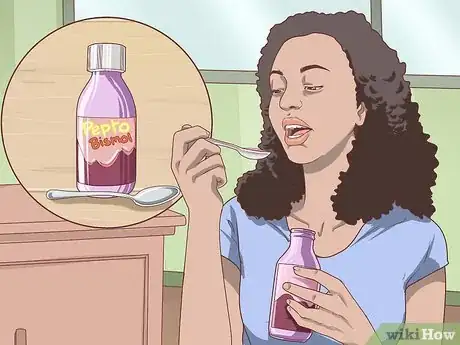



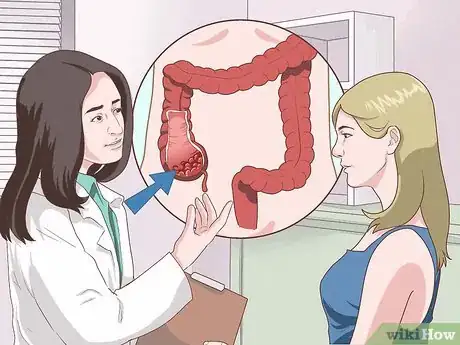
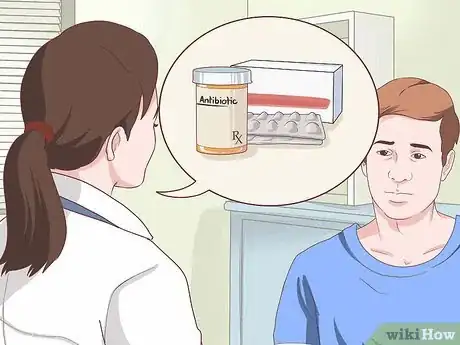



-Step-12.webp)



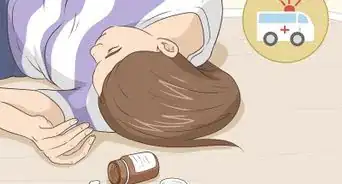
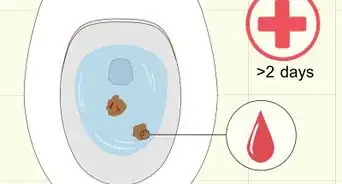




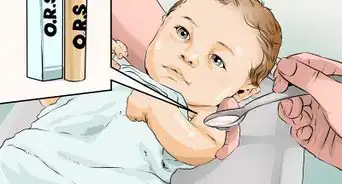






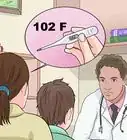


-Step-12.webp)



































Medical Disclaimer
The content of this article is not intended to be a substitute for professional medical advice, examination, diagnosis, or treatment. You should always contact your doctor or other qualified healthcare professional before starting, changing, or stopping any kind of health treatment.
Read More...